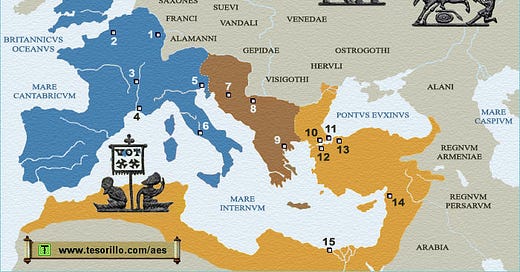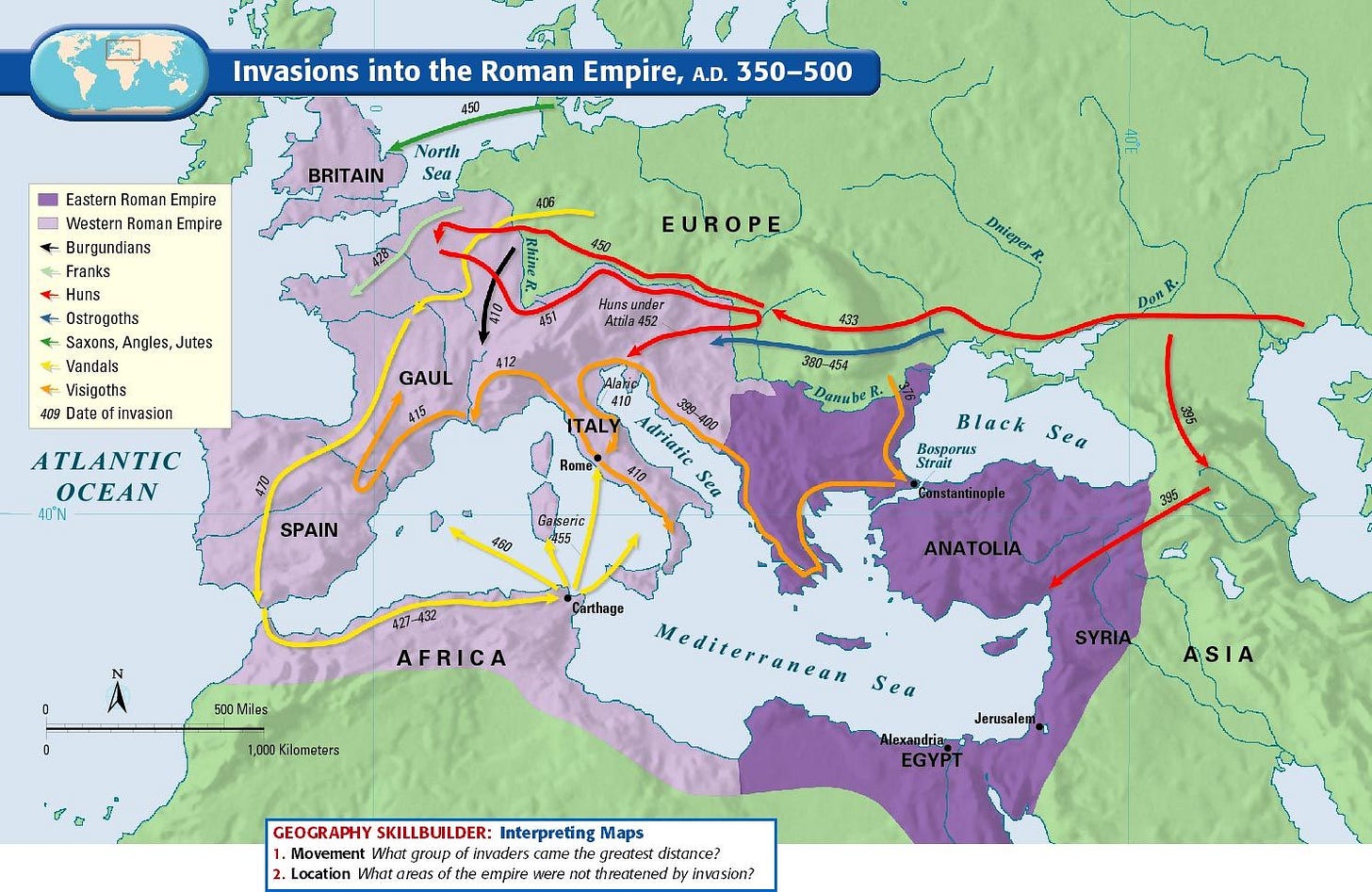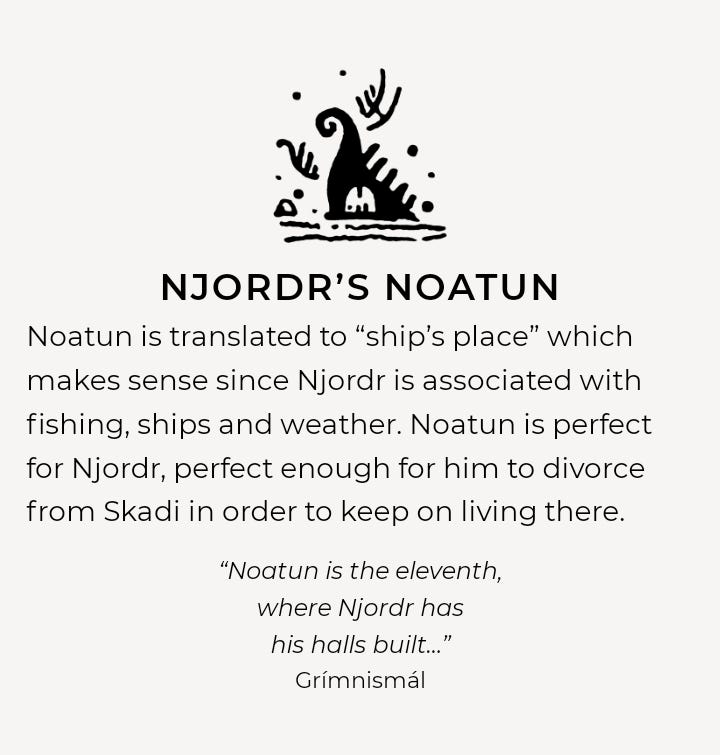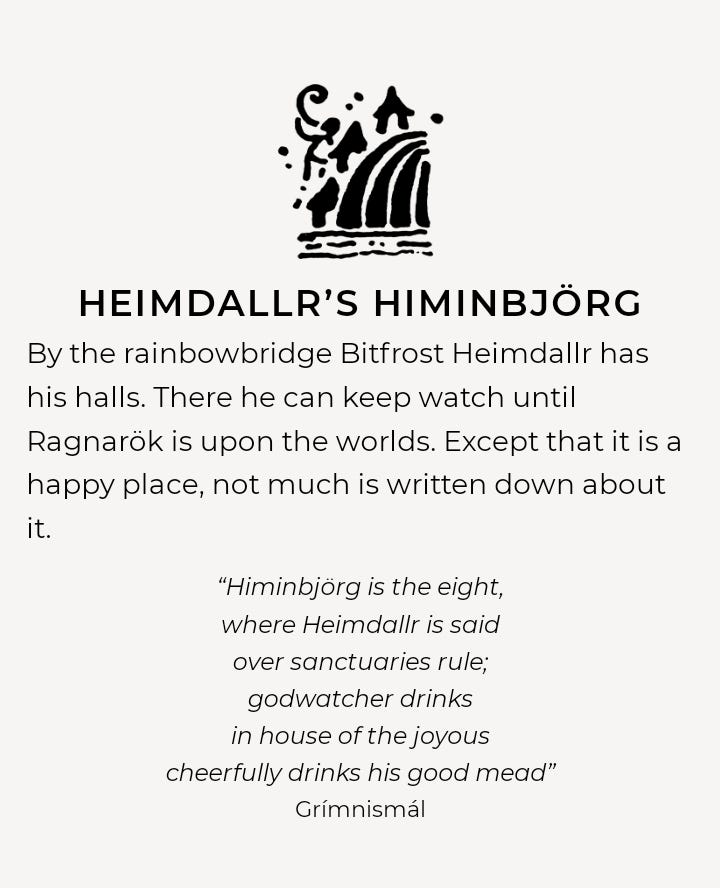Not Everyone Goes To Valhalla, And That's Okay. Part - 2
There Are Multiple Gods with Lands and Halls for all of the People of Midgard.
Yes, Many Of The Vikings Wanted Valhalla.
Before we get to the “Other Halls” let's cover a quick bit of contextual history. This is simply to explain when and why, Valhalla and Odin became the Primary Afterlife destination, and Ruling Deity. Also it is to explain why some experts say that signs of Odin only seem to have appeared around the time of 50 - 100 AD, and explain why they are wrong.
From roughly 600 AD, to 1,100 AD there was indeed a presence of sea faring raiders known as Vikings who revered Odin. Their lifestyle of sailing across oceans and raiding foreign shores has certainly left its mark in history. Most people know at least this much from basic history in school, and from pop culture. What they don’t teach in school or in Marvel movies, is that “most” Pagan folk did not engage in that Viking lifestyle. In fact, before Theododius II and his accords and codes (laws), written with Valentinian III, making it legal to kill Pagan folks in the name of God, this sea raiding was almost unheard of, people across Germania worshiped Donar, Thor, Thunar. Constantine began banning Paganism, and started the crusades about a hundred years before Theodosius II ruled the Roman Empire. What he did, was carry down the infamous Constantine’s mission. He used the help of Valentinian III, who at the time ruled the Western Roman Kingdoms. This alliance was made, to make sure these laws were enforced all across the Roman Empire.
By roughly 476 AD, they eventually chased a majority of the remaining Germanic Tribal Nations to areas North of the Rhine river. This time frame in my opinion is likely when the “war” culture, and heavy veneration of Odin / Wotan began to concentrate into bigger pockets. This time is rather hard to determine exactly, because all “expert sources” seem to give different dates for when Odin became the primary Deity.
Odin of course is the name most commonly known in modern day because it is what he was called in Norse Germanic dialect, Old Norse. These are the folks that migrated to Iceland as the Roman Invasions progressed just a few hundred years later. Their texts are the ones that we know now as the infamous Snorri Sturluson compilation of Sagas, the Prose Edda, and the earlier Poetic Edda. Before these migrations, most of the Germanic peoples from Gaul to the Baltic sea, would have all venerated different Gods among the 2 large pantheons the Aesir, and Vanir. The Halls of the Gods that we know of now, all belong to Aesir.
The Halls of the Gods of the Aesir.
These are the “heavens” for the modern followers of the Norse / Germanic traditions. In the last article we covered Thor’s hall Bilskirner Freya’s Sussrumne, and Frey’s Alfheimr. This week we will cover three of them that I consider my personal favorites. First we have Baldur who as the favorite son of Odin, is in my opinion by far one of the most important yet underrated and under discussed in the whole pantheon. It is in the tales of his death being foretold and later avenged, that we see the best descriptions of Hel in all of the Norse Germanic texts.
So let's dig in..
Baldur, and Breidablick :
Right now we will look at Breidablick, the home and hall of Baldur, and his wife Nanna / Nann. Baldur was the favorite son of Odin by far, even more than the mighty Thor, at least that's how it seems from the sagas in the Eddas. Either way, Baldur was said to have been perfect from birth. His name that arguable either stems from the Proto Germanic word (Bold,) or the Proto Indo European word prefix Bal meaning (White) was his Father's favorite. It is said that when he was born Baldur visibly had the runes on his tongue, and could speak. He was the god of light and warmth, while his brother Hodr was the god of Darkness, and Husband to Hel / Hella, the goddess of the Underworld. They were each other's polar opposites. Later in the Eddas we see that Baldur’s death was actually at the hand of this very same brother. He was convinced to kill his brother by his father in law, Loki.
His hall Breidablick is the clean, shining, and perfect Hall, where nothing dirty or tainted may dare to go. If there are any of the Norse Germanic Gods halls that have a similar description to “Heaven” as it is described in the Christian context, this hall would be it. Not only is it referred to as the 7th hall, and described as a “Heavenly place” but it is also only for the “pure” souls. In my opinion this hall is the afterlife destination for children who died before becoming adults, and those few adults who lived truly pure lives.
Njord : The God of Fishing, Ships, and the Weather.
The hall belonging to Njord known as Noatun, appears to be a coastal city with a bustling port in my opinion, not an island of its own. One of the few statements made about it, are based on the etymology of the word Noatun. A word that simply means the “ships place.” From the texts of the Eddas we know much more about Njord himself, than we do about his Hall.
First, and foremost we know that he is the father of Frey, and Freya, possibly with Nerthus. Also he is one of the few gods who had a seat with both the Aesir, and the Vanir. Many associate Njord with being the god of the sea, because of his link to fishing, boats, and weather, but that domain actually belongs to Aegir. Njord is the God of weather, but only when it comes to Crops, Fishermen, and favorable fishing conditions. That is why I believe Noatun is a coastal port city within Asgard, rather than an Island, or a City out in the Sea. After the Aesir, and Vanir war, Njord married the giantess Skadi. An ill fated marriage where the bride chose her groom, (in an attempt to marry Baldur) based only on seeing his feet. Rather than choosing the young, and handsome Baldur, Skadi was surprised to have picked the aged and jaded Njord. Shortly after the couple was wed, Njord went back to Noatun but Skadi refused to go.
Njord”s Hall would likely be where people who wove nets and sails, or made anchors would go. They would be joined by fishermen, and sailors who lived full lives, and did not die at sea, or had drowned. Those who die at sea, or drown will go to Aegir”s Hall instead.
Heimdall / Heimdallr, and Himinbjorg :
Heimdall is the God of the safe cities, and the Sanctuaries, along with being the God of the Guards. His hall sits by Bifrost, the bridge where Jotun can periodically cross into Asgard and Midgard. He attentively guards the bridge here between the cycles of Ragnarok.
Heimdall is a giant himself, who was the direct offspring of his 9 giantess mothers. Their father was Aegir, the god of the sea, making Heimdall the Grandson of the ancient Sea God Aegir. This is highly debated though, because the 9 mothers are named, and so are Aegir’s daughters and they have a few names that are slightly different. There is also a lot of old Norse, and Germanic texts, suggesting that Heimdall is the father of all of humanity. Could he be the father of Ash and Elm, who Odin later found lifeless and muddy after a flood, and breathed life back into them? Heimdall is another one of the Gods, of whom I believe are totally under discussed. Is he the son of Odin, and 9 female giants? One of the other well known facts about Heimdall, is that he carries Gjallarhorn. When the Jotun giants begin to invade by crossing the Bifrost, or when Ragnarok begins, he blows this horn to warn the Gods.
Who goes to Heimdall’s Hall?
Security Guards almost certainly go to Himinbjörg, along with some soldiers. National Guardsmen, and other soldiers who guard and secure their homelands, are certain to dwell here also. As a father to humanity, his hall may also be for his descendants as well.
The Halls of the Gods I have mentioned in these articles, are all in Asgard, and the folks residing among them would all be able to visit each other. There is no reason to fear going to one hall or haven, and being separated from family and friends who go to another one. Even Hel is accessible to those in Asgard, which according to the Eddas, for Hermod is only a 9 night ride, from Asgard the home of the Ancestral Gods. Granted he was riding Odin’s eight legged horse Sleipnir, who was one of Loki’s many monstrous offspring. Regardless of the distance, our afterlife destinations are all connected.
So, Until We Meet In Asgard (Or you read the next Article)…. Hail Odin.
Thank you for reading.
Links and Sources :
The Gods
Njord / Njördr : https://norse-mythology.org/gods-and-creatures/the-vanir-gods-and-goddesses/njord/
Maps
https://www.tesorillo.com/aes/_map/map3.htm








